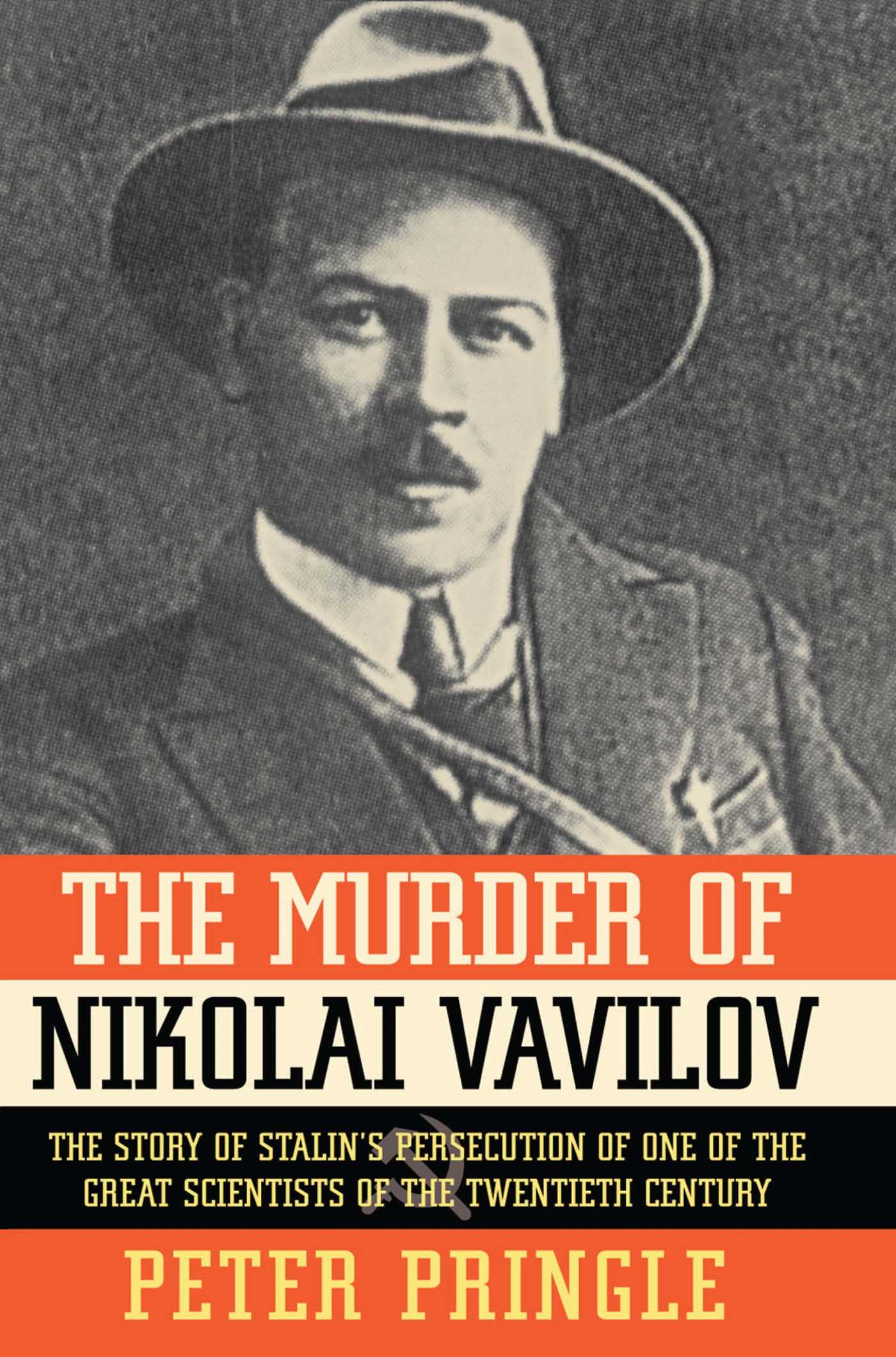Plus, receive recommendations and exclusive offers on all of your favorite books and authors from Simon & Schuster.
Table of Contents
About The Book
In The Murder of Nikolai Vavilov, acclaimed journalist and author Peter Pringle recreates the extraordinary life and tragic end of one of the great scientists of the twentieth century.
In a drama of love, revolution, and war that rivals Pasternak's Dr. Zhivago, Pringle tells the story of a young Russian scientist, Nikolai Vavilov, who had a dream of ending hunger and famine in the world. Vavilov's plan would use the emerging science of genetics to breed super plants that could grow anywhere, in any climate, in sandy deserts and freezing tundra, in drought and flood. He would launch botanical expeditions to find these vanishing genes, overlooked by early farmers ignorant of Mendel's laws of heredity. He called it a "mission for all humanity."
To the leaders of the young Soviet state, Vavilov's dream fitted perfectly into their larger scheme for a socialist utopia. Lenin supported the adventurous Vavilov, a handsome and seductive young professor, as he became an Indiana Jones, hunting lost botanical treasures on five continents. In a former tsarist palace in what is now St. Petersburg, Vavilov built the world's first seed bank, a quarter of a million specimens, a magnificent living museum of plant diversity that was the envy of scientists everywhere and remains so today.
But when Lenin died in 1924 and Stalin took over, Vavilov's dream turned into a nightmare. This son of science was from a bourgeois background, the class of society most despised and distrusted by the Bolsheviks. The new cadres of comrade scientists taunted and insulted him, and Stalin's dreaded secret police built up false charges of sabotage and espionage.
Stalin's collectivization of farmland caused chaos in Soviet food production, and millions died in widespread famine. Vavilov's master plan for improving Soviet crops was designed to work over decades, not a few years, and he could not meet Stalin's impossible demands for immediate results.
In Stalin's Terror of the 1930s, Russian geneticists were systematically repressed in favor of the peasant horticulturalist Trofim Lysenko, with his fraudulent claims and speculative theories. Vavilov was the most famous victim of this purge, which set back Russian biology by a generation and caused the country untold harm. He was sentenced to death, but unlike Galileo, he refused to recant his beliefs and, in the most cruel twist, this humanitarian pioneer scientist was starved to death in the gulag.
Pringle uses newly opened Soviet archives, including Vavilov's secret police file, official correspondence, vivid expedition reports, previously unpublished family letters and diaries, and the reminiscences of eyewitnesses to bring us this intensely human story of a brilliant life cut short by anti-science demagogues, ideology, censorship, and political expedience.
In a drama of love, revolution, and war that rivals Pasternak's Dr. Zhivago, Pringle tells the story of a young Russian scientist, Nikolai Vavilov, who had a dream of ending hunger and famine in the world. Vavilov's plan would use the emerging science of genetics to breed super plants that could grow anywhere, in any climate, in sandy deserts and freezing tundra, in drought and flood. He would launch botanical expeditions to find these vanishing genes, overlooked by early farmers ignorant of Mendel's laws of heredity. He called it a "mission for all humanity."
To the leaders of the young Soviet state, Vavilov's dream fitted perfectly into their larger scheme for a socialist utopia. Lenin supported the adventurous Vavilov, a handsome and seductive young professor, as he became an Indiana Jones, hunting lost botanical treasures on five continents. In a former tsarist palace in what is now St. Petersburg, Vavilov built the world's first seed bank, a quarter of a million specimens, a magnificent living museum of plant diversity that was the envy of scientists everywhere and remains so today.
But when Lenin died in 1924 and Stalin took over, Vavilov's dream turned into a nightmare. This son of science was from a bourgeois background, the class of society most despised and distrusted by the Bolsheviks. The new cadres of comrade scientists taunted and insulted him, and Stalin's dreaded secret police built up false charges of sabotage and espionage.
Stalin's collectivization of farmland caused chaos in Soviet food production, and millions died in widespread famine. Vavilov's master plan for improving Soviet crops was designed to work over decades, not a few years, and he could not meet Stalin's impossible demands for immediate results.
In Stalin's Terror of the 1930s, Russian geneticists were systematically repressed in favor of the peasant horticulturalist Trofim Lysenko, with his fraudulent claims and speculative theories. Vavilov was the most famous victim of this purge, which set back Russian biology by a generation and caused the country untold harm. He was sentenced to death, but unlike Galileo, he refused to recant his beliefs and, in the most cruel twist, this humanitarian pioneer scientist was starved to death in the gulag.
Pringle uses newly opened Soviet archives, including Vavilov's secret police file, official correspondence, vivid expedition reports, previously unpublished family letters and diaries, and the reminiscences of eyewitnesses to bring us this intensely human story of a brilliant life cut short by anti-science demagogues, ideology, censorship, and political expedience.
Product Details
- Publisher: Simon & Schuster (July 2, 2011)
- Length: 384 pages
- ISBN13: 9781451656497
Browse Related Books
Resources and Downloads
High Resolution Images
- Book Cover Image (jpg): The Murder of Nikolai Vavilov Trade Paperback 9781451656497
- Author Photo (jpg): Peter Pringle Photo Credit:(0.1 MB)
Any use of an author photo must include its respective photo credit














